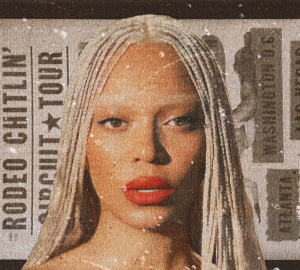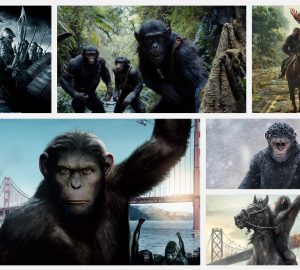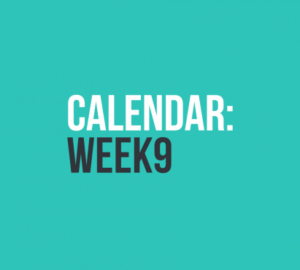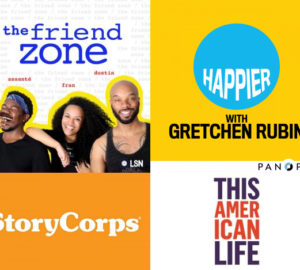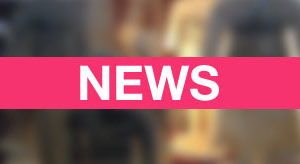SCAD-Atlanta counselor Kevin Buckins saves the day!
By Megan Glasscock and Angela Sasser
 SCAD-Atlanta provides services to aid students during the most trying times of their college career. Are you feeling stressed, depressed or simply in need of a helping hand? Never fear, for the counselors are here! Meet Kevin Buckins, one of the counselors at SCAD-Atlanta working for the good of the student body.
SCAD-Atlanta provides services to aid students during the most trying times of their college career. Are you feeling stressed, depressed or simply in need of a helping hand? Never fear, for the counselors are here! Meet Kevin Buckins, one of the counselors at SCAD-Atlanta working for the good of the student body.
1. What is it exactly you do for SCAD?
My exact title is Counselor and Disability Specialist. I work in Counseling and Student Support Services on the first floor in
Student Services, along with my Director, Sophie Viola, and our counseling interns. We each provide student support through
confidential counseling for personal concerns (like relationship problems, anxiety and stress), academic services (time management, study skills and the like) and accommodations for students with documented disabilities.
2. Why is being a counselor so nifty?
Nifty? What does that mean, exactly? I’m not sure about “nifty,” but I enjoy being a counselor because I find it to be rewarding work. Being able to help students discover their own answers to life’s unique problems is a special thing; it’s both a great privilege and a great responsibility. Counseling students in particular is especially rewarding because people in transition are usually far more open to and excited about the change process. As a problem-solving mechanism, counseling is also a very creative endeavor, which appeals to my own more artistic side. I like helping people, and counseling is just a great way to do that.
3. How did you decide on your profession? Were there any inspiring moments?
I was greatly inspired by my own counselor when I was an undergrad in college, and also by my RD at the time — a special mentor and friend who himself had attended the same program at Georgia State University, where I received my graduate degree in counseling. I suppose I’ve always been considered a natural-born listener and creative problem-solver and enjoy thinking optimistically outside the box, so peers have always tended to turn to me for support and input. Also, working aimlessly in retail for a few years after graduating with a fairly unemployable degree forced me to recognize what I enjoyed most about my job: helping others. So, when it was suggested to me for the umpteenth time that I should consider becoming a counselor, it finally clicked, and that’s what I decided to do.
4. When you were a child, what was the worldview on people with disabilities? How do you feel about it as an adult?
I can’t speak for the entire world’s point of view, but clearly people with differences have always had challenges in our society — whether those differences happened to be about sex, race or physical appearance. I think we’re fortunate to exist in a time where people’s thinking has evolved somewhat, and where education has allowed us to begin taking more sophisticated approaches to life’s more complex problems. The way I see it is that we each all represent the same life; we’re just poured into different molds, and if it weren’t for my unique DNA and my unique experiences, I would be you, and you would be me, so who am I to judge or to not help my neighbor in need? It could just as easily be me in any situation. We’re all essentially the same in essence, and what we fail to do for others is really a failure within ourselves. I believe that we’re constantly creating our world by the choices that we make, and if we’re not happy with how things are, it’s up to us to change them, and our effectiveness in doing so depends completely upon how we value human life and how we treat each other, regardless of individual differences.
5. Who are the kinds of people you help?
Really, there is no one that I don’t try to help, whether it’s directly helping or by providing information or through researching a referral. If I were to pick a specialty, I suppose it would be in working with the broader category of people I refer to as “the worried well,” that is, people who are essentially okay, but who are struggling with life’s direction or meaning and need some basic guidance; people who are motivated, but perhaps feeling stuck. In a way, I guess you could call it “coaching.” I suppose I am an existentialist by nature — meaning, someone who ponders the deeper questions in life and thrives on the notion that we are each responsible for making what we can of ourselves in this short, precarious, but extraordinarily rare and sacred existence, and that existential orientation of mine is very much reflected in my work as a counselor, no matter the kind of problem a student might be facing.
6. Finish this sentence: My name is _____. I am here to _____.
My name is Kevin. I am here to be what I can be, do what I can do, and share the fulfillment that I achieve in ways that are genuine, relevant and creative, and to hopefully succeed in making a small but positive mark on my world.

